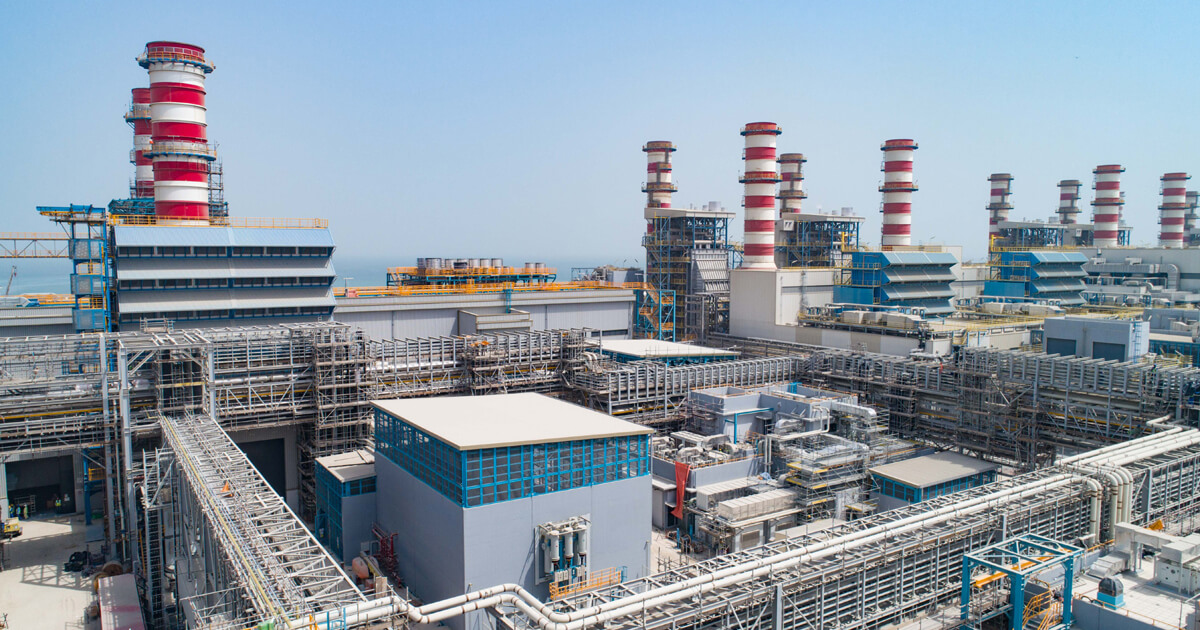DEWA begins testing turbines at 700MW M-Station expansion projetc
Dubai, UAE, 16 July 2018: Dubai Electricity and Water Authority (DEWA) has started testing of the turbines in the M-Station expansion project in Jebel Ali. M-Station is the newest and largest electricity generation and water desalination plant in the UAE. The cost of the expansion project is AED 1.47 billion. Testing includes initial operation of turbines and power generators and connecting them to the grid. These tests are essential to ensure the quality and reliability of the units while connected to the grid. Tests are scheduled to continue until the completion of the project in Q4 of 2018. The project supports DEWA’s vision to become a sustainable innovative world class utility.
The project’s team currently focuses on preparations and operational readiness to assess the station’s readiness. After the completion of the initial tests, DEWA will start testing the pilot operation of the plant. A plan has been devised to conduct these tests according to the best practices, and based on accumulated experience in this field, to achieve maximum reliability, efficiency and safety. The plan aims to reduce commissiong costs in three areas: rationalising fuel consumption, regulating interruptions, and reducing heat rate.
“The Jebel Ali M-Station expansion project supports DEWA’s efforts to enhance the infrastructure, and improve DEWA’s services according to the highest international standards. It also supports the Dubai Clean Energy Strategy 2050, which was launched by His Highness Sheikh Mohammed bin Rashid Al Maktoum, Vice President and Prime Minister of the UAE and Ruler of Dubai, to diversify energy sources in the Emirate to include 25% from solar energy, 7% from nuclear power, 7% from clean coal, and 61% from gas by 2030. The strategy is to provide 75% from Dubai’s total power output from clean energy sources by 2050. DEWA has launched major sustainable projects to achieve this strategy. The most prominent one is the Mohammed bin Rashid Al Maktoum Solar Park, which is the largest single-site solar project in the world. It will produce 5,000MW by 2030,” said HE Saeed Mohammed Al Tayer, MD & CEO of DEWA.

“The tests that we are conducting on the turbines in the M-Station expansion project are the final stage of the expansion project, to ensure it operates according to the highest levels of availability, reliability and efficiency. The tests are conducted in four main stages: initial operational launch, operational tests, reliability tests, and performance tests. These tests aim to achieve the project’s objectives by ensuring the conformity of its technical specifications. When completed, the project will increase the station’s total capacity to 2,885MW. The expansion project includes the provision of new power generating units adding a further 700MW to the installed generating capacity of M-Station. The expansion project includes the addition of two dual-fuel gas turbine generators, two heat recovery steam boilers, and one steam turbine with 90% of fuel efficiency. This will increase the plant’s thermal efficiency from 82.4% to 85.8%, which is one of the highest thermal-efficiency rates in the world,” added Al Tayer.
M-Station is the newest and largest electricity generation and water desalination plant in the UAE, with a current total capacity of 2,185MW of electricity and 140 million imperial gallons of desalinated water per day. The station uses the most advanced technologies in the world based on the highest levels of availability, reliability and efficiency, and the latest smart devices and sophisticated technological systems. M-Station’s total cost was AED10.15 billion. AED 6.2 billion were invested to generate 2,185MW of electricity from 6 gas turbines (F-model) from Siemens, with a capacity of 255MW for each unit, 6 boilers for waste-heat recovery from Korean Doosan company, and 3 steam turbines, with a capacity of 218MW each from Alstom Energy GE. The project was completed in mid-2010. Water desalination systems costing AED 3.95 billion use 8 desalination units, deploying Multi-Stage Flash (MSF) distillation technology, each with a capacity of 17.5 MIGD and totalling 140 MIGD from Italy’s Fisia, two dual-fuel-fired auxiliary boilers of 390 tonnes per hour, and 16 fuel-oil storage tanks, each with a capacity of 20,000 cubic metres, with total fuel-oil storage of 320,000 cubic metres.
